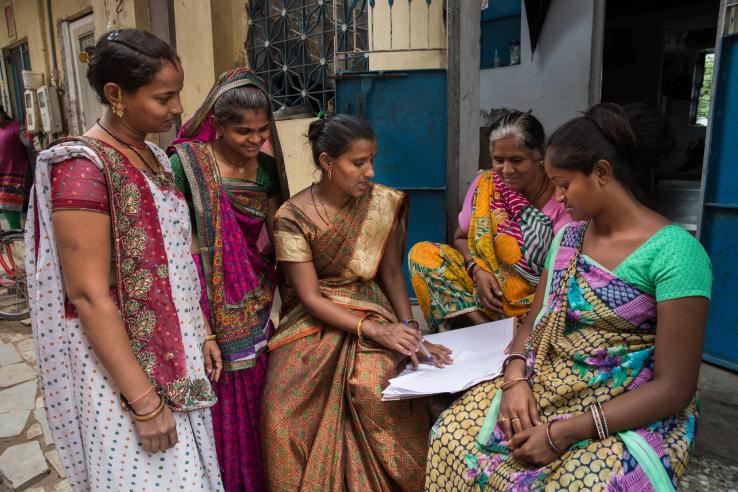Bridging Disciplines to Advance Governance Research: Collaborations on Gender, Social Networks, and Climate Change

Pressing questions on strengthening governance and expanding political participation—from overcoming polarization online, to deepening the inclusion of women and underrepresented groups, to mitigating climate change—extend beyond the scope of any one discipline. In light of this, the Governance Initiative invites researchers from across disciplines to join us for an exploration of cutting-edge multidisciplinary governance research.
See the agenda >>
Over the past 11 years, J-PAL’s Governance Initiative has seen an increasing number of economists collaborating with researchers from other disciplines and leveraging their methodologies, insights, and tools to strengthen their work. The conference will highlight impactful research from multidisciplinary teams to inspire new collaborations. Panels will focus on multidisciplinary approaches to studying the intersections between governance and social networks, gender, and climate change. The event will offer networking opportunities to foster connections among researchers from across different disciplines with an interest in rigorous research on governance and political participation.
Register to attend the event >>
A complementary J-PAL and IPA event will also take place in the same location the day following, on December 5. This event will showcase cutting-edge research supported by the Governance, Crime, and Conflict Initiative on topics in good governance, crime prevention, peacebuilding, and post-conflict recovery. It will feature panels exploring strategies to strengthen state capacity in fragile contexts, foster social cohesion in divided societies, leverage governance strategies to mitigate climate change, and more.
Stay tuned for our detailed agenda and speaker list, coming in the next several weeks.
Learn about GI
Since 2010, J-PAL’s Governance Initiative (GI) has funded randomized evaluations that address three policy-relevant research areas for improving governance: improving citizen participation in the political and policy process, reducing leakages in public programs, and strengthening state capacity. By funding, synthesizing, and disseminating cutting-edge research, the Governance Initiative serves as a vehicle for translating evidence into policy–with the ultimate goal of strengthening political participation and improving governance in low- and middle-income contexts.
Register to attend the event >>
For any questions, please email [email protected].
Speakers
Nava Ashraf, Professor of Economics, London School of Economics and Political Science
Oeindrila Dube, Philip K. Pearson Professor of Global Conflict Studies, University of Chicago
Teresa Esteban Casanelles, Lecturer (AP) in Economics and Policy, King’s College London
Adrien Fabre, CNRS researcher, CIRED
Frederico Finan, George Break and Helen Schnacke Break Distinguished Professor of Economics and Professor of Business Administration, University of California, Berkeley
Ro’ee Levy, Assistant Professor of Economics, Tel Aviv University
Michael Muthukrishna, Associate Professor of Economic Psychology, London School of Economics and Political Science
Jennifer Pan, Professor of Communications, Stanford University
Rohini Pande, Henry J. Heinz II Professor of Economics and Director of Economic Growth Center, Yale University
Soledad Prillaman, Assistant Professor of Political Science, Stanford University
Anita Raj, Executive Director of the Newcomb Institute and the Nancy Reeves Dreux Endowed Chair in the School of Public Health and Tropical Medicine, Tulane University
Simone Schaner, Associate Professor of Economics, University of Southern California
Carlo Schwarz, Assistant Professor of Economics, Bocconi University
Steven R. Smith, Tipping Points Research Impact Fellow, Global Systems Institute, University of Exeter; Visiting Research Fellow, CUSP, University of Surrey
Madalina Vlasceanu, Assistant Professor of Psychology, New York University
Noam Yuchtman, Drummond Professor of Political Economy, University of Oxford